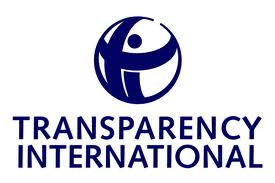 Rise of populist politicians in many countries is a warning signal
Rise of populist politicians in many countries is a warning signal
2016 showed that around the world systemic corruption and social inequality reinforce each other, leading to popular disenchantment with political establishments and providing a fertile ground for the rise of populist politicians.
69 per cent of the 176 countries on the Corruption Perceptions Index 2016 scored below 50, on a scale from 0 (perceived to be highly corrupt) to 100 (perceived to be very clean), exposing how massive and pervasive public sector corruption is around the world. This year more countries declined in the index than improved, showing the need for urgent action.
No equal opportunities for all
Corruption and inequality feed off each other, creating a vicious circle between corruption, unequal distribution of power in society, and unequal distribution of wealth. As the Panama Papers showed, it is still far too easy for the rich and powerful to exploit the opaqueness of the global financial system to enrich themselves at the expense of the public good.
“In too many countries, people are deprived of their most basic needs and go to bed hungry every night because of corruption, while the powerful and corrupt enjoy lavish lifestyles with impunity,” said José Ugaz, Chair of Transparency International.
“We do not have the luxury of time. Corruption needs to be fought with urgency, so that the lives of people across the world improve,” added Ugaz.
Grand corruption cases, from Petrobras and Odebrecht in Brazil to Ukrainian ex-President Viktor Yanukovych, show how collusion between businesses and politicians denies national economies of billions of dollars of revenues that were siphoned off to benefit the few at the expense of the many. This kind of systemic grand corruption violates human rights, prevents sustainable development and fuels social exclusion.
Brazil’s score on the index, for example, has significantly declined compared to five years ago as one corruption scandal after another involving top politicians and businesspeople was uncovered. Yet the country has shown this year that through the work of independent law enforcement bodies it is possible to hold to account those previously considered untouchable.
Populism is the wrong medicine
People are fed up by too many politicians’ empty assurances to tackle corruption and many are turning towards populist politicians who promise to change the system and break the cycle of corruption and privilege. Yet this is likely to only exacerbate the issue.
“In countries with populist or autocratic leaders, we often see democracies in decline and a disturbing pattern of attempts to crack down on civil society, limit press freedom, and weaken the independence of the judiciary. Instead of tackling crony capitalism, those leaders usually install even worse forms of corrupt systems,” said Ugaz. “Only where there is freedom of expression, transparency in all political processes and strong democratic institutions, can civil society and the media hold those in power to account and corruption be fought successfully.”
The index scores of Hungary and Turkey – countries that have seen the rise of autocratic leaders – have dropped in recent years. In contrast, the score of Argentina, which has ousted a populist government, is starting to improve.
What needs to be done
Technical fixes to specific anti-corruption legislation are not enough. What is urgently needed are deep-rooted systemic reforms that even up the growing imbalance of power and wealth by empowering citizens to stop the widespread impunity for corruption, hold the powerful to account, and have a real say in the decisions that affect their daily lives.
These reforms must include the disclosure through public registries of who owns companies as well as sanctions for professional enablers who are complicit in moving corrupt money flows across borders.
The results
The Corruption Perceptions Index 2016 covers perceptions of public sector corruption in 176 countries. Click here for the full index.
Denmark and New Zealand perform best with scores of 90, closely followed by Finland (89) and Sweden (88). Although no country is free of corruption, the countries at the top share characteristics of open government, press freedom, civil liberties and independent judicial systems.
For the tenth year running, Somalia is the worst performer on the index, this year scoring only 10. South Sudan is second to bottom with a score of 11, followed by North Korea (12) and Syria (13). Countries at the bottom of the index are characterised by widespread impunity for corruption, poor governance and weak institutions.
Countries in troubled regions, particularly in the Middle East, have seen the most substantial drops this year. Qatar is the biggest decliner compared to the 2015 index with a drop of 10 scores. “The FIFA scandals, the investigations into the decision to host the World Cup in 2022 in Qatar and reports of human rights abuses for migrant workers have clearly affected the perception of the country,” said Ugaz.
